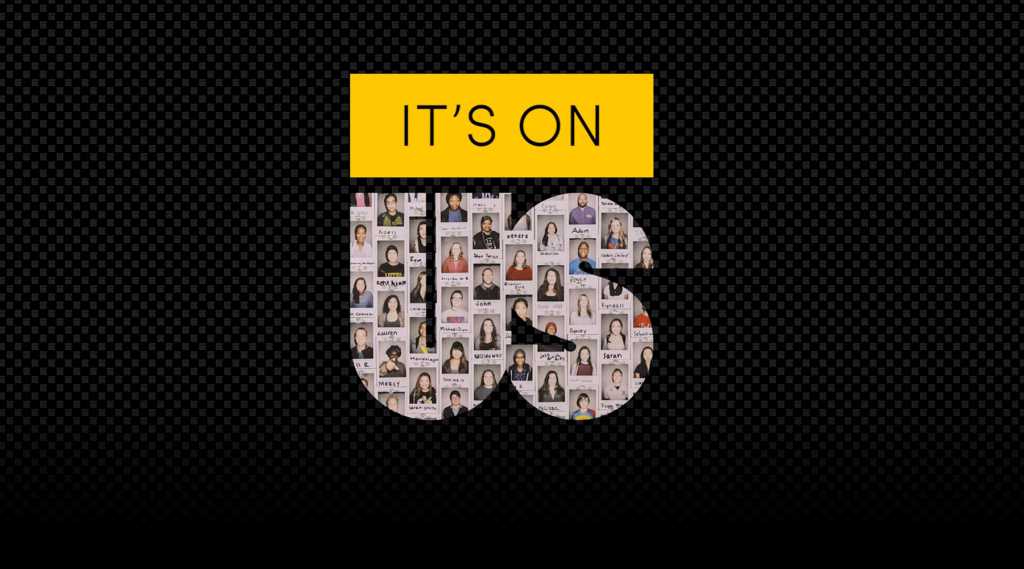Page 111 • (1,154 results in 0.078 seconds)
-
: PSYC 101. (4) PSYC 335 : Cultural Psychology - GE The study of the relation between culture and human behavior. Topics include cognition, language, intelligence, emotion, development, social behavior, and mental health. Prerequisite: PSYC 101. (4) PSYC 337 : Culture and Health This course explores the role of culture on health issues around the world from a psychological perspective. Theories from health psychology, and secondarily from medical anthropology and medical sociology, are used to
-

Smith, Director of the Women’s Center, said the It’s On Us campaign helps remold the responsibility of the university to reshape the culture around violence—and it’s not simply a women’s issue. “Everyone is impacted by violence, and everyone is responsible to speak up, act up, notice and do something because if that becomes a cultural norm, people will know this isn’t tolerated on campus,” she said. Across campus a variety of events offered opportunities for students, faculty members and staff to
-
Violence, Holocaust and Genocide Studies at University College London Bio: Joanna Michilic is a social and cultural historian, and founder and first Director of HBI (Hadassah-Brandeis Institute) Project on Families, Children, and the Holocaust at Brandeis University. Currently, she is an Honorary Senior Research Associate at the UCL Centre for the Study of Collective Violence, the Holocaust and Genocide, UCL Institute for Advances Studies. Conference ScheduleThis January she will begin her appointment
-
, social justice, and leadership. My experience at Pacific Lutheran University was shaped by excellent professors, faculty, staff, and all the people who work every day towards making PLU a safe and caring community. Cross-cultural influences, global events, and guest-lectures have broadened my horizon and provided different perspectives and understandings of the world that I will carry with me towards new goals. If not for the opportunities that I have been presented with, I know that I would not be
-

has the power to tell a story she believes is important—regardless of who she is and where in the world that story may be. “We are living in a time when we have great power as individuals to communicate and understand what is happening halfway around the world. If you see an injustice, you have the power to communicate it, talk about it, Tweet about it, march about it, make a film about it, change it.” Her visit began with lunch in the Scandinavian Cultural Center, where more than 100 students
-

1997. “It doesn’t mean they didn’t want what was best for me.” Still, she remembers her mother’s reaction: “You have ideas above your station, young lady.” As Ellard-Ivey would discover, it’s not easy being first. Students whose parents or siblings have not attended college face significant hurdles when they choose higher education. Many not only lack cash, but they also may be deficient in the kind of social and cultural capital that their peers with college-educated parents gain as a birthright
-
taught at PLU since 1997. “It doesn’t mean they didn’t want what was best for me.” Still, she remembers her mother’s reaction: “You have ideas above your station, young lady.” As Ellard-Ivey would discover, it’s not easy being first. Students whose parents or siblings have not attended college face significant hurdles when they choose higher education. Many not only lack cash, but they also may be deficient in the kind of social and cultural capital that their peers with college-educated parents gain
-
. Presenters: David Zimmerman, Ph.D. Nichola Farron Moderator: David Simpson, Chair of Social Work at PLU 5:00 p.m. - 6:45 p.m. – Dinner Break (Scandinavian Center, AUC)For those that have pre-registered, a reception with light fare will be in the Scandinavian Cultural Center 7 p.m. – Keynote Speaker: Dr. Sabine Hildebrandt, M.D. (Chris Knutzen Hall, AUC 214)“Anatomy in National Socialist (Nazi) Germany – Politics, Science, Ethics and Legacies” In this talk, the history of the interaction between
-

live in a country that doesn’t really value bilingualism,” Davidson said. “They have distinct talents that we need to help support and develop.” Davidson designed the course series, now in its third year, as a hybrid between cultural studies and language learning. It offers bilingual students the rare opportunity to develop both languages simultaneously and in community. It also aims to destigmatize the use of so-called “slang,” or less formal ways of speaking. “It’s not seeing them as a population
-
exploring your calling? I’m at a spot where I’m self-reflecting on my skills and, through that, trying to best utilize them. I’m also working on self-exploration. How do you see yourself applying information from these seminars into your daily life? I think being self-aware and perceptive to the needs of others. The readings that we’ve been doing have been very informative to provide a historical context for America as I’m Canadian. Getting the cultural and societal context has been interesting and
Do you have any feedback for us? If so, feel free to use our Feedback Form.


